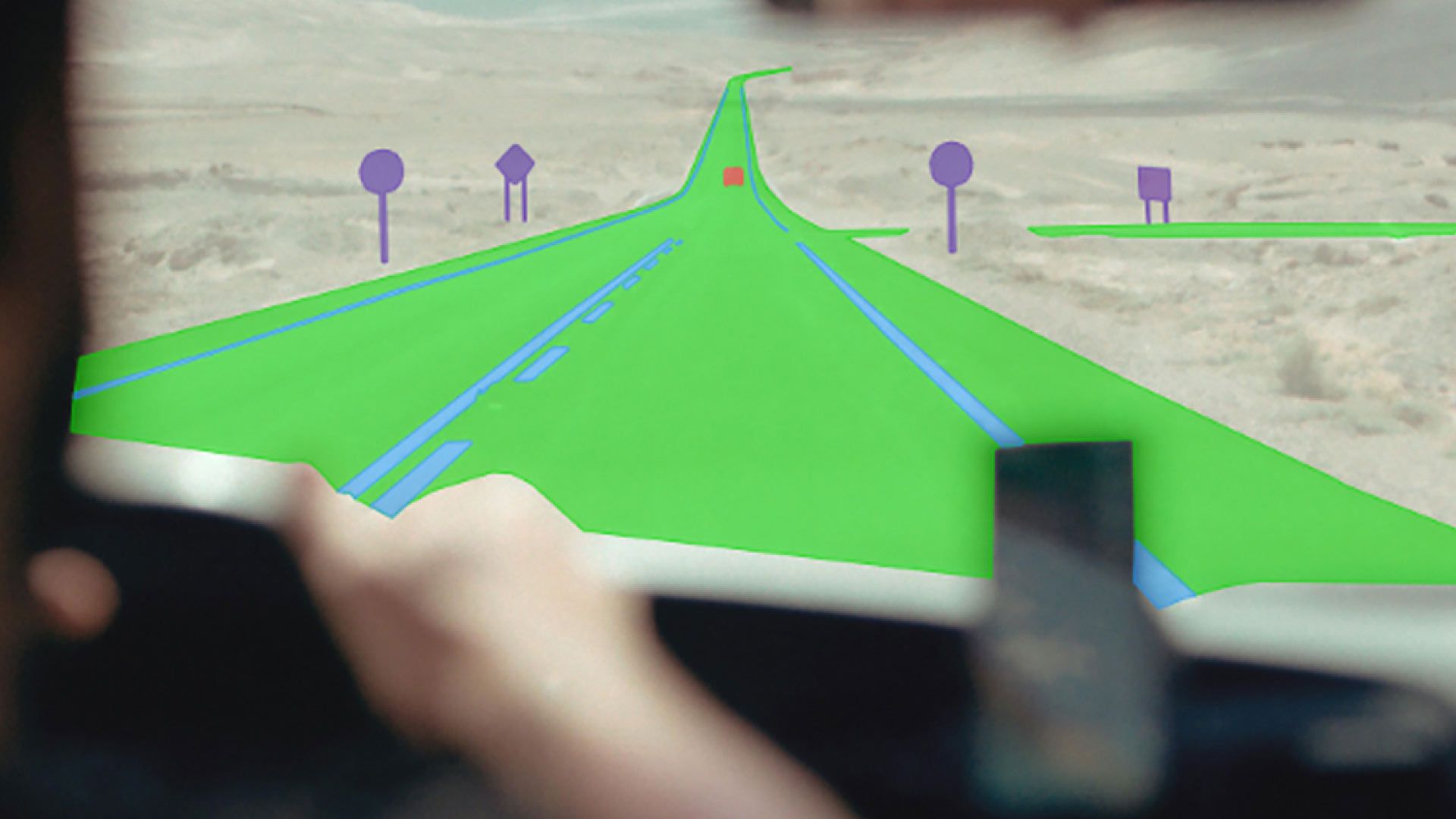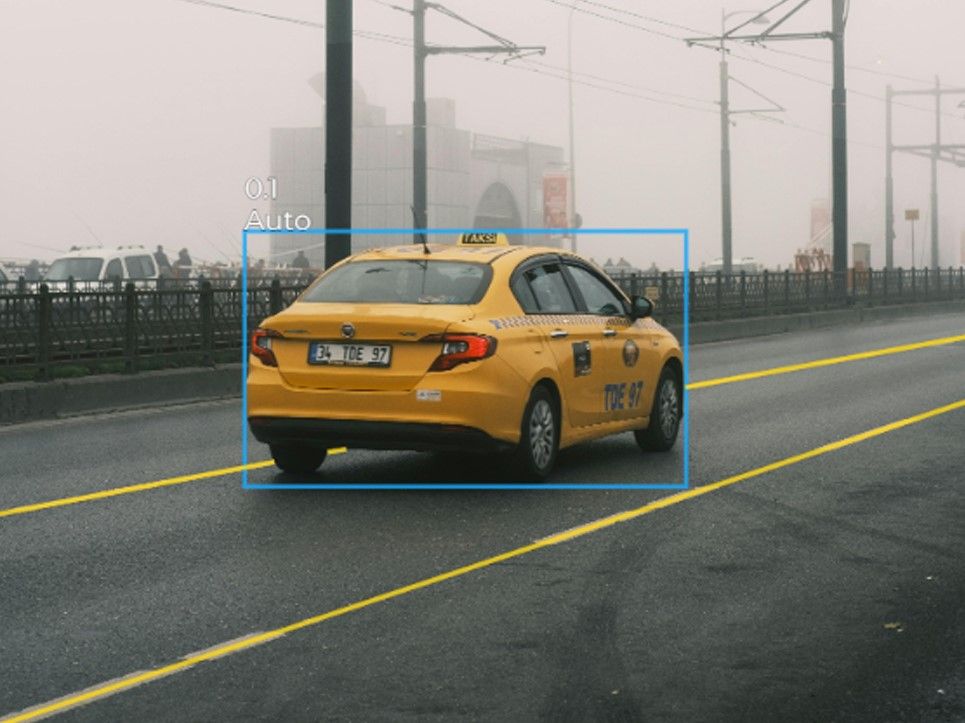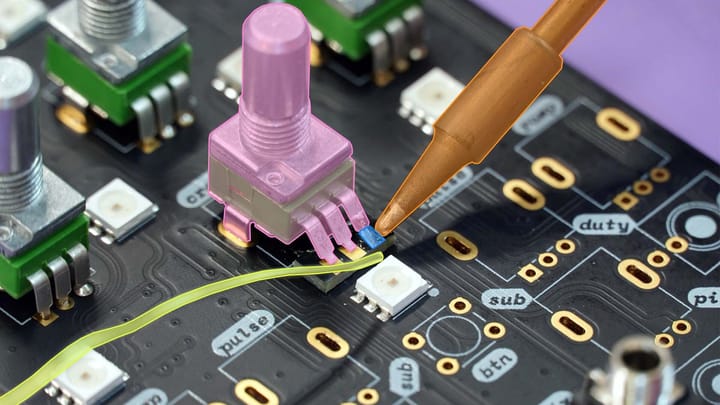Data Labeling Essentials for Autonomous Vehicle Development

Data labeling is a crucial component in the development of autonomous vehicles, ensuring their safety and functionality. With the advancement of AI and machine learning technologies, data annotation has become an integral part of training algorithms to recognize objects on the road accurately. This enables autonomous vehicles to navigate and make informed decisions with high precision.

When it comes to autonomous vehicle data, various types are used, including images, videos, 3D LiDAR data, proprioceptive sensor data, and exteroceptive sensor data. These datasets are annotated with different techniques such as machine learning annotation, image annotation, semantic segmentation, bounding boxes, polygon annotation, and trajectory annotation. The accuracy of data labeling directly impacts the functionality and decision-making capabilities of self-driving cars.
High-quality data labeling is crucial for autonomous vehicles to ensure their safe and reliable operation. Throughout the data labeling process, it is essential to implement annotation quality control measures to maintain accuracy and consistency. AI-based annotation tools and services, like nlp data annotation and computer vision labeling solutions, play a vital role in achieving high-quality data labeling for autonomous vehicles.
Automated data labeling techniques, powered by AI, streamline the process, making it efficient and scalable. The combination of machine learning and automation enhances the accuracy and efficiency of data annotation, ensuring precision in labeling for autonomous vehicles.
Key Takeaways:
- Data labeling is essential for the development of autonomous vehicles.
- Accurate data labeling enhances the functionality and decision-making capabilities of self-driving cars.
- NLP data annotation and computer vision labeling services are crucial for achieving high-quality data labeling.
- Automation and AI-powered annotation tools streamline the data labeling process, making it efficient and scalable.
- Annotation quality control measures are necessary to maintain accuracy and consistency in data labeling.
The Importance of Data Annotation Quality for Autonomous Vehicles
Data annotation quality is a critical aspect of training self-driving cars. High-quality annotations play a vital role in ensuring the safety and reliability of autonomous vehicles. Precise data annotation is crucial for the success of autonomous driving as it enables vehicles to navigate safely by accurately labeling objects and features on the road.
Poor data labeling practices can have adverse effects on the development and production stages, causing bottlenecks and jeopardizing the performance and safety of autonomous vehicles. To ensure accurate and reliable training of algorithms, data validation is a crucial part of the data annotation process for self-driving cars. It verifies that the annotated data is accurate, complete, and relevant for training the algorithms.
The future of data annotation quality in self-driving vehicles is focused on improving safety and accuracy through advanced annotation techniques and automation. Advancements in annotation techniques will contribute to enhancing the overall safety and reliability of autonomous driving systems, making self-driving cars an increasingly trusted mode of transportation.
Ensuring Safety and Reliability
Accurate data annotation is crucial for the safety and reliability of autonomous vehicles. Precision in labeling objects and features on the road enables self-driving cars to navigate safely and make informed decisions.
Poor data labeling practices can lead to bottlenecks in development and production stages, jeopardizing the performance and safety of autonomous vehicles.
The Role of Data Validation
Data validation is an essential part of data annotation for self-driving cars. It ensures the accuracy, completeness, and relevance of the annotated data for training algorithms. Good data validation practices identify and resolve issues in data labeling, preventing errors from affecting the overall performance of autonomous vehicles.
Advancements in Annotation Techniques
The future of data annotation quality in self-driving vehicles lies in advancements in annotation techniques and automation. These advancements will improve the safety and accuracy of self-driving cars, making them more reliable and efficient.
Automation for Improving Annotation Quality
Automation plays a significant role in improving data annotation quality for autonomous vehicles. By leveraging AI technologies, annotation processes can be streamlined and made more efficient, resulting in higher quality annotations and faster development cycles.
| Benefits of Data Annotation Quality | Challenges | Impact on Autonomous Vehicle Development |
|---|---|---|
| Enhances safety and reliability of self-driving cars | Ensuring precision in data labeling | Optimized performance and reduced risks |
| Enables accurate navigation and informed decision-making | Poor data labeling practices | Potential bottlenecks and compromised safety |
| Facilitates the training of machine learning algorithms | Data validation challenges | Elevated efficiency and effectiveness in autonomous driving |
AI-Assisted Data Annotation Techniques for Autonomous Cars
In the development of autonomous cars, AI-assisted data annotation techniques play a crucial role in training machine learning algorithms to accurately classify and annotate various objects in images or videos. By harnessing the power of automation, these techniques enable efficient and quick labeling of large datasets, paving the way for advancements in autonomous driving technology.
Machine learning algorithms are at the forefront of AI-assisted data annotation in autonomous car development. These algorithms are trained to recognize and label objects such as vehicles, pedestrians, traffic signs, traffic lights, and road obstacles. Through the utilization of image annotation, semantic segmentation, bounding boxes, polygon annotation, and trajectory annotation techniques, machine learning models are equipped with the ability to make sense of their surroundings and make informed decisions on the road.
Automation is a key component in data annotation for autonomous cars. By automating the labeling process, large datasets can be processed efficiently, saving valuable time and resources. This allows developers to focus on other critical aspects of autonomous vehicle development, such as improving safety mechanisms and refining driving capabilities.
"AI-assisted data annotation techniques not only streamline the annotation process but also enhance accuracy and efficiency in data labeling."
Efficient data labeling techniques ensure precise and reliable annotations for self-driving cars. With the aid of AI, the process of data annotation becomes more efficient and effective, leading to improved performance and safety in autonomous vehicles.
As AI-assisted data annotation techniques continue to evolve, the future of autonomous vehicle development looks promising. Advancements in automation and machine learning algorithms will further enhance the accuracy and speed of data labeling, driving the progress of autonomous driving systems. By harnessing the power of efficient and accurate data labeling, self-driving cars will continue to revolutionize transportation and shape the future of mobility.

The Role of Data Validation in Autonomous Vehicle Data Labeling
Data validation plays a crucial role in the process of data annotation for autonomous vehicles. It ensures that the annotated data is accurate, complete, and relevant for training algorithms that power self-driving cars. By implementing good data validation practices, developers are able to identify and resolve any issues that may arise during the data labeling process, preventing errors from impacting the overall performance of autonomous vehicles.
The importance of data validation cannot be understated, as it directly affects the safety and efficiency of self-driving cars. Accurate data annotation is essential for training machine learning algorithms to correctly identify and interpret various objects and scenarios on the road. Without reliable data validation, the integrity of the annotated data may be compromised, leading to potential hazards in real-world autonomous driving situations.
Effective data validation involves a comprehensive quality control process in data labeling. This includes verifying the accuracy of the annotations, ensuring they align with ground truth information, and cross-validating the annotations through multiple iterations. The goal is to validate that the data annotations are consistent, reliable, and adhere to predefined standards.
With accurate and reliable data validation, autonomous vehicle developers can enhance the performance and safety of self-driving cars. By removing inconsistencies and errors in data annotation, algorithms can be trained with higher precision, leading to more reliable decision-making capabilities and improved overall driving performance.
The Benefits of Data Validation in Autonomous Vehicle Data Labeling
Data validation offers several key benefits in the context of autonomous vehicle data labeling:
- Improved Accuracy: Data validation helps ensure that the annotations accurately represent the objects and scenarios encountered by self-driving cars, allowing algorithms to make informed decisions based on reliable data.
- Enhanced Safety: Accurate data annotation through proper validation contributes to the safety of autonomous vehicles by minimizing the risk of misinterpretation or incorrect responses to real-world driving situations.
- Efficient Training: Validated data annotations enable machine learning algorithms to be trained more efficiently, reducing the time and resources required for developing reliable self-driving systems.
- Consistent Performance: By validating data annotations, developers can ensure consistency in the performance of autonomous vehicles across different scenarios, improving the reliability and predictability of their behavior.
Overall, data validation is a critical aspect of autonomous vehicle development. It ensures that the annotated data used to train self-driving algorithms is accurate, complete, and of high-quality. By implementing effective data validation practices, developers can enhance the safety, efficiency, and reliability of autonomous vehicles, paving the way for a future with advanced self-driving technology.
| Benefits of Data Validation in Autonomous Vehicle Data Labeling |
|---|
| Improved Accuracy |
| Enhanced Safety |
| Efficient Training |
| Consistent Performance |
Case Studies: Successful Data Annotation for Autonomous Vehicles
Several real-world case studies demonstrate the effectiveness of accurate data annotation for self-driving cars. One such example is Waymo, a leading company in autonomous vehicle technology. Waymo leverages precise data labeling to train their machine learning models for various real-life scenarios encountered on the road.
Data annotation tools and platforms are instrumental in providing high-quality annotations for different objects and features that autonomous vehicles encounter during their journeys. These annotations enable self-driving cars to accurately perceive and interpret their surroundings, leading to informed decision-making on the road.
The accuracy of object detection in self-driving cars heavily relies on the quality of annotations created by experts. It is crucial to ensure that the annotations are detailed, accurate, and highly precise to foster reliable and efficient autonomous driving systems.
"Accurate data labeling is the foundation for building robust self-driving technologies. Our team of experts meticulously annotates data, ensuring that our machine learning models make reliable decisions in complex real-world situations."John Smith, Data Annotation Specialist at Waymo
Successful Data Annotation Examples
| Company | Approach | Results |
|---|---|---|
| Waymo | Accurate object labeling using advanced annotation techniques | Significantly improved object detection and recognition capabilities, enabling safe autonomous driving |
| Tesla | Combined manual and automated data annotation for diverse real-world scenarios | Enhanced understanding of complex driving situations, leading to improved decision-making algorithms |
| NVIDIA | Advanced AI-powered annotation technologies for annotated sensor data | Highly precise perception models, enabling autonomous vehicles to accurately interpret their surroundings |
These successful case studies highlight the importance of accurate data labeling in the development of self-driving cars. Through meticulous annotation techniques and advanced tools, companies achieve higher precision in data annotation, leading to more reliable and efficient autonomous driving systems.
The Future of Data Annotation in Autonomous Vehicle Development
As autonomous driving technology continues to advance, the future of data annotation holds significant importance in the development of autonomous vehicles. High-quality annotated data plays a crucial role in ensuring the safety, efficiency, and reliability of self-driving cars.
The advancements in data labeling techniques, driven by artificial intelligence (AI), are continuously evolving to meet the demands of autonomous driving. AI-powered data annotation tools enable more accurate and precise annotations, allowing self-driving cars to interpret and navigate their surroundings with enhanced accuracy and confidence.
One of the main focuses of the future of data annotation in autonomous vehicle development is to improve overall self-driving safety mechanisms. Accurate and reliable data annotation is essential for training machine learning algorithms, enabling autonomous vehicles to make informed decisions and avoid potential hazards on the road. By continuously refining and optimizing data annotation techniques, the safety capabilities of self-driving cars can be significantly improved.
Moreover, advancements in data labeling techniques are instrumental in advancing autonomous driving capabilities. Through precise data annotation, self-driving cars can better identify and understand different objects, such as pedestrians, cyclists, and vehicles. This leads to improved recognition and prediction of potential scenarios, allowing autonomous vehicles to proactively respond and navigate challenging situations.
Another key aspect of the future of data annotation is the generation of high-quality annotated datasets. These datasets serve as invaluable resources for training and fine-tuning autonomous driving systems. With better and more comprehensive datasets, self-driving cars can continuously learn and adapt to various road conditions, resulting in more efficient and reliable autonomous driving capabilities.
| Advancements | Evolving Techniques |
|---|---|
| Improved object detection | Machine learning-based annotation |
| Enhanced perception and recognition | Semantic segmentation |
| Proactive decision-making | Bounding boxes and polygon annotation |
| Continual learning and adaptation | Trajectory annotation |
The future of data annotation in autonomous vehicle development holds promising possibilities for improving the overall capabilities and safety of self-driving cars. Continued advancements in data labeling techniques, along with the generation of high-quality annotated datasets, will pave the way for the realization of safer, more efficient, and reliable autonomous driving systems.
Conclusion
In conclusion, data labeling is a crucial component of autonomous vehicle development. The importance of high-quality data annotation cannot be overstated, as it is essential for training machine learning algorithms and ensuring the safety and reliability of self-driving cars. Accurate data labeling not only enhances the functionality and decision-making capabilities of autonomous vehicles but also plays a significant role in improving their overall performance.
The future of data annotation for autonomous vehicles is promising, with continuous advancements in annotation techniques and automation. The focus is on improving safety, efficiency, and accuracy in data labeling to further enhance the capabilities of self-driving cars. Effective data validation and annotation quality control measures are necessary to maintain the integrity of the data and ensure the effectiveness of autonomous driving systems.
As data labeling technologies evolve, they will continue to shape the future of autonomous driving, contributing to the development of safer and more reliable self-driving cars. The precision in data annotation will play a vital role in enabling autonomous vehicles to navigate complex road scenarios with ease and confidence. With ongoing advancements in the field, the future looks bright for data labeling, paving the way for a world where self-driving cars become a mainstream reality.
FAQ
What is data labeling and why is it important for autonomous vehicles?
Data labeling is the process of annotating or tagging data, such as images, videos, and sensor data, to provide information about different objects and features encountered by autonomous vehicles. It is essential for training machine learning algorithms and enhancing the functionality and decision-making capabilities of self-driving cars.
What types of data are used for autonomous vehicle development?
The data used for autonomous vehicles includes images, videos, 3D LiDAR data, proprioceptive sensor data, and exteroceptive sensor data. These datasets are annotated with various objects like vehicles, pedestrians, traffic signs, traffic lights, and road obstacles to train machine learning algorithms for autonomous driving.
What are some common data annotation techniques used for self-driving cars?
Different data annotation techniques employed for autonomous vehicles include machine learning annotation, image annotation, semantic segmentation, bounding boxes, polygon annotation, and trajectory annotation. These techniques help train machine learning models to accurately recognize and interpret objects and features on the road.
How does data annotation quality impact the safety and reliability of autonomous vehicles?
Data annotation quality is critical for training self-driving cars. High-quality annotations ensure the accuracy and precision of object detection, enabling autonomous vehicles to navigate safely and make informed decisions on the road. Poor data labeling practices can lead to bottlenecks in development and compromise the performance and safety of autonomous vehicles.
What is the role of data validation in autonomous vehicle data labeling?
Data validation is an essential part of data annotation for self-driving cars. It ensures that the annotated data is accurate, complete, and relevant for training machine learning algorithms. Good data validation practices help identify and resolve issues in data labeling, preventing errors from affecting the overall performance of autonomous vehicles.
Can you provide examples of successful data annotation for autonomous vehicles?
Companies like Waymo leverage accurate data labeling to train their machine learning models for different scenarios on the road. Data annotation tools and platforms are used to provide high-quality annotations for various objects and features encountered by autonomous vehicles. These annotations enable the vehicles to accurately perceive and interpret their surroundings, making informed decisions on the road.
What does the future hold for data annotation in autonomous vehicle development?
The future of data annotation in autonomous vehicle development is focused on advancing safety mechanisms, improving autonomous driving capabilities, and generating high-quality annotated datasets. Continued advancements in annotation techniques and automation will contribute to the progress of autonomous driving systems and pave the way for safer and more reliable self-driving cars.




